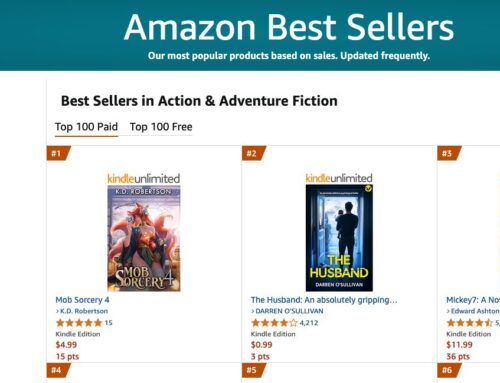Let’s face it—publishing a paperback and calling it a day is like baking a cake and never frosting it. Sure, it’s technically a cake. But it’s not quite ready for the party. In today’s ever-evolving literary jungle, if your book exists only in physical form, it’s basically wearing a sign that says, “I don’t like success.”
The Modern Reader: A Fickle, Digital Beast
Once upon a time, readers carried books everywhere. Literal books. Heavy, spine-breaking tomes. Back then, lugging around War and Peace was considered a character-building exercise. Today? Readers prefer downloading entire libraries onto devices lighter than a ham sandwich.
If your book isn’t available as an e-book, you’re missing out on:
- Impulse buyers who purchase at 2 a.m. in their pajamas.
- International readers who don’t want to pay $27 shipping for your paperback.
- Mobile bookworms who read while waiting in line for coffee, dentist appointments, or existential dread to pass.
But I Love the Smell of Paper…
Yes, yes. Paper smells nice. Nostalgia is powerful. Holding a book feels like holding a piece of civilization itself. Hardcovers even add that satisfying thunk when dropped. But romanticizing paper alone won’t pay the bills. Ask Colleen Hoover, who was grinding away selling paperbacks until e-books catapulted her into literary superstardom. And Andy Weir? The Martian was self-published as an e-book before Ridley Scott ever got his hands on it.
Physical books and e-books are not rivals. They’re a tag team. Batman and Robin. Peanut butter and jelly. Existential despair and black coffee.
The Good, The Bad, and the Beautiful
Let’s break it down.
Paperback Pros:
- Tangible. You can throw it across the room during frustrating plot twists.
- Great for signings and public readings.
- Looks fantastic on shelves and Instagram.
Paperback Cons:
- Expensive to print and ship.
- Limited reach.
- Trees might hold a grudge.
Hard Cover Pros:
- Prestige. Nothing says “serious author” like a hardback edition.
- Higher profit margins per unit.
- Heirloom potential (your great-grandkids can resell them for college tuition).
Hard Cover Cons:
- Even pricier than paperbacks.
- Heavy enough to qualify as gym equipment.
E-Book Pros:
- Global distribution in minutes.
- Zero printing costs.
- Adjustable fonts for readers who forgot their glasses.
- Searchable text. (Yes, that’s important to people. Don’t ask why.)
E-Book Cons:
- No “new book smell.”
- Slightly harder to autograph without breaking international DRM laws.
The Invisible Barrier: Exclusivity
Some authors cling to paperbacks because they fear “cheapening” their work. As if digital books are somehow the fast food of literature. Let me gently shatter that illusion: Exclusivity is not strategy. It’s self-sabotage.
Margaret Atwood? E-books. Neil Gaiman? E-books. Brandon Sanderson? E-books (plus record-breaking Kickstarter campaigns). If literary royalty has embraced the format, so can you.
Readers Expect Options—Give Them What They Want
Imagine telling a modern reader, “You can only buy my book in paperback. No e-book. No audiobook. Just this one format, take it or leave it.”
Spoiler alert: They’ll leave it.
Readers want flexibility. They want to read on a Kindle during their commute, flip through a paperback at the beach, and proudly display a hardback on their bookshelf—all for the same title.
Your Book’s Future: Adapt or Fossilize
Here’s the harsh truth: refusing to offer your book in multiple formats doesn’t make you a misunderstood artist. It makes you a fossil in the making. And while museums are great, no one wants their career to be an exhibit on missed opportunities.
Your paperback has done its job.
Now let it retire gracefully into the warm, digital embrace of an e-book edition. And hey, if you feel like tossing a hardcover into the mix? Even better.
Your readers will thank you. Your sales will thank you. Even the trees will thank you.
Get an Editorial Review | Get Amazon Sales & Reviews | Get Edited | Get Beta Readers | Enter the SPR Book Awards | Other Marketing Services





















